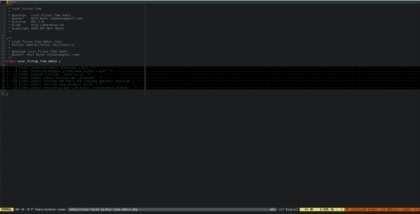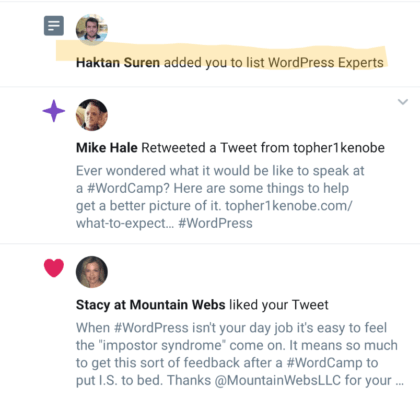
Technical Architect
A Christ-follower, husband, father, and WordPress Developer with Forum One.
Similar Posts

Geek / Programming / WordPress
WordPress Development On A Chromebook, Termux, & Neovim
So about 6 months ago I decided to make some changes to my personal development environment. I’ve been using a Chromebook as my primary machine since about 2013. I first purchased an Acer C710 for my wife to use but compared to our Macbook Pro it was a frustrating and subpar experience for her, not to mention she was a heavy Adobe Suite user. Since sharing the Macbook Pro was challenging I set out to use the Chromebook as me development machine. Originally I went with the crouton option. It was pretty sweet to have a full Linux environment alongside Chrome OS. I was then running a full LAMP environment with PhpStorm as my IDE. This worked OK, I had performance and stability issues at…

Development / Geek / Programming / Tech / WordPress
Talking WPRig and Theming in the Gutenberg Era with Morten Rand-Hendricksen
This month we’re taking a look at the WPRig WordPress framework from its developer Morten Rand-Hendricksen. This will be a live remote presentation with Q&A as time allows. If you want to learn more ahead of the meetup, follow this link https://wprig.io/ “Pave the cowpath” – WordPress could be the thing that paves the cowpath for the modern web, but it isn’t. Underscores used to be the starting theme do build off of, but there was no real standard, and modern, build process. Build Process Modern JavaScript Modern CSS (customer properties, etc) WordPress Coding Standards Code Linting for PHP, JS, CSS Automatic internationalization Code and asset optimization Starter Theme Accessible Modern best-practices Styled out of the box Minimum required files Optional templates Progressive features Gutenberg New…

WordCamp GR 2017 – Computers <3 Structured Data – Steve Grunwell
Steve Grunwell – https://stevegrunwell.com/ https://github.com/stevegrunwell/structured-data/blob/master/README.md What is Structured Data? Standards to help computers to understand our content. Content is for humans. Structured data is for machines. Structured Data Structured data is all about providing context itemtype/itemprop/content HTML/XML HyperText and eXtensible Markup Language Meant to convey information in a meaningful way Generic layout RSS An extension of XML for content sydication Introduced structure: post titles, content, dates Standardized and can be validated Microformats & Dublin Core Competing standards for rich data Dublin Core is a specific set of standards, but designed to be limited in scope Uses meta tags Microformats – uses class names Resource Description Framework (RDF) A specification for modeling metadata New attributes Opengraph Facebook’s social graph Used to create rich media when sharing content…
Life’s Lows…
No worries, things are good I just seem to be suffering from some social withdrawal. That being said God is working on my patience, thank goodness. I’m fighting my mind daily, but it’s been those times God has given me the ability to just give it to Him. Something that is interesting, I’ve been have some interesting dreams. These dreams have been about the same general thing. It seems like these have been dreams that God has brought to mind to reveal something to me that I didn’t realize was there. Basically I’ve had some recentment about something. I’ve asked for forgiveness for this. Something else that God has shown me is why I’ve not been content over the years staying in one place. I…


